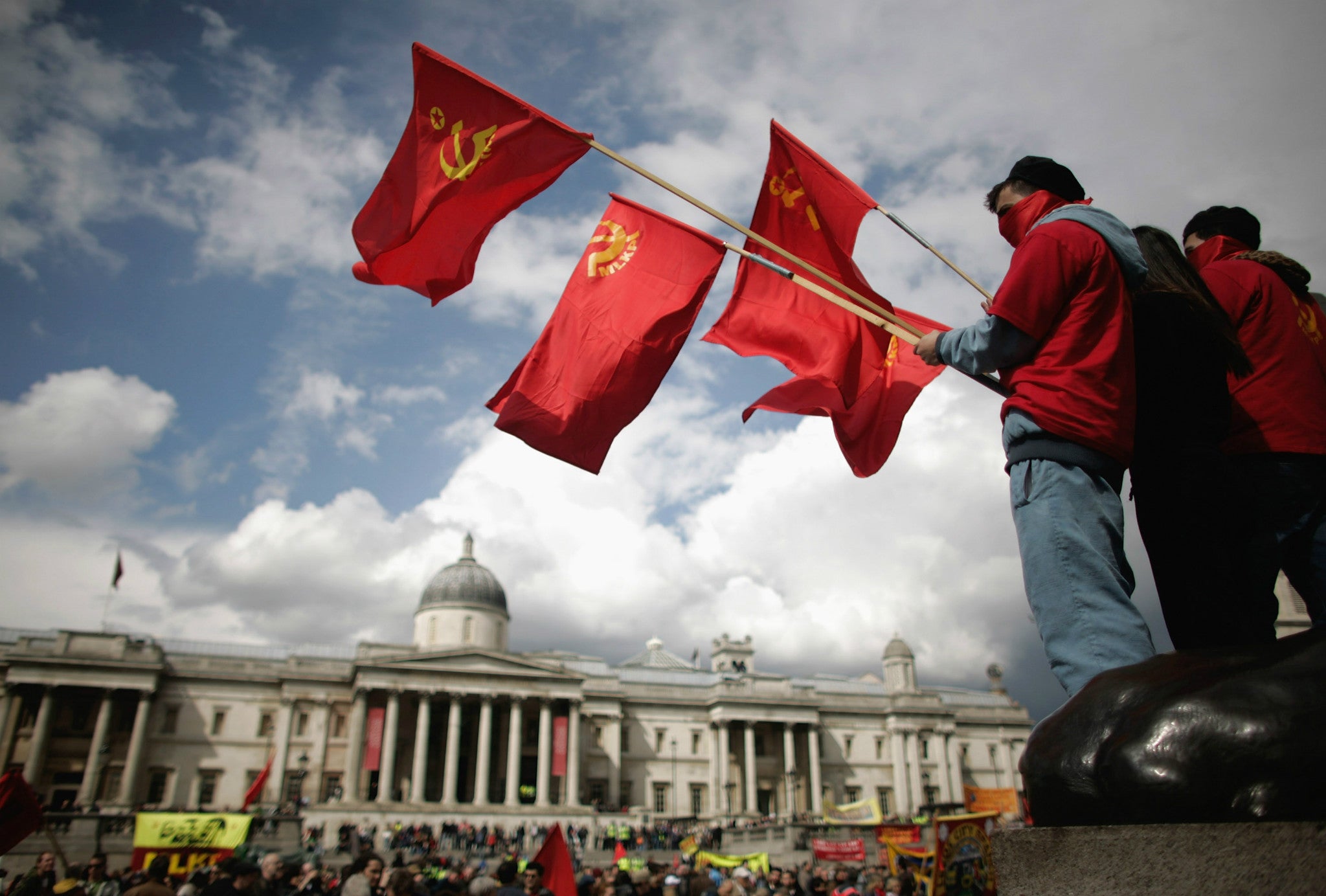Capitalist? Socialist? It’s time we dropped such meaningless labels from our political discourse
Is France socialist because it has a national energy company? Is Germany socialist because it has rent controls?


The American essayist Ralph Waldo Emerson once observed that a foolish consistency is the hobgoblin of little minds. Swap “foolish consistency” for “foolish label” and one has a good description of our contemporary political discourse.
Theresa May defends “free market capitalism”. Jeremy Corbyn makes the case for “21st century socialism”. So the headlines and the news reports yell at us. So the party leaders themselves inform us in their speeches.
But what do these labels actually mean? What economic policies do they signify? What sort of societies do they describe?
The concept of capitalism dates back to the Industrial Revolution, when wealthy entrepreneurs owned the new physical “capital” that was made possible by advances in technology. The boss of the new textile factory was also the owner. And that ownership conferred immense economic power and social authority, as factory bosses could determine the wages and conditions of the workers.
But who owns the physical capital, the “means of production”, of our modern economy? It’s no longer the people who run the large organisations in which a great many of us work. Millions of us will be invested in these giant companies through our pension funds. Does that make us all “capitalists”, like little 19th century mill owners? Hardly. Economic power has been divorced from corporate ownership. But that doesn’t mean it’s been broadly shared.
Another wrinkle is that today’s most dynamic companies – think Google, Amazon and Uber – actually have very little “capital” in the classic meaning of the word. The value of such firms derives not from tangible equipment or commodities, but from their intellectual property, from the expertise of their high-skilled employees and, increasingly, their networks and brands.
“Socialism” is a similarly problematic label, dating from the era of political struggles between newly-organised workers and the established economic elite. But the workers won many of those battles, establishing workplace protections, universal voting rights and state welfare systems. So what does socialism mean in a modern context? Soviet Union-style central planning and the abolition of private property? Venezuelan-style price controls? Cuban-style suppression of civil liberties?
Or does it simply mean the state ownership of certain natural monopoly utilities? This seems to be the justification for the use of the label in relation to Labour’s election manifesto. But, following that rationale, should we describe the Netherlands as socialist because its rail system is state-owned? Is France socialist because it has a national energy company? Is Germany socialist because it has rent controls?

In fact all these countries are social democracies – a variety of developed-world market-based economy. Britain has another variety. So does Japan. So do the Scandinavian nations. These are all mixed economies, where markets coexist with some degree of state ownership and intervention. Even America, with its state-funded scientific research programmes and New Deal-era social security system, is really a mixed economy.
The idea that Theresa May and the Conservatives are offering a set of policies that can be usefully summed up as “capitalism” and Labour are offering something entirely distinct called “socialism”, is fatuous. There are certainly differences between the two major parties in their view of the proper borders between market and state within our mixed economy (bigger differences than there have been for several decades) – but their positions plainly still lie on a recognisable continuum.
Theresa May herself says she wants a louder voice for workers in company board rooms, and stresses that markets must operate “with the right rules and regulations”. And Jeremy Corbyn, for all the attempts by the right-wing press to portray him as a bloodthirsty revolutionary, is not calling for the nationalisation of supermarkets and car manufacturers.
People are time-poor, and labels can be a useful shorthand when we all know roughly what is being referred to. But these particular labels – “capitalist”, “socialist” – don’t facilitate understanding: they short-circuit it. They don’t encourage us to think seriously about the challenges of making our complex and rapidly-evolving economies work in ways that will raise living standards and opportunities for human flourishing. They are essentially a spur to mindless tribalism: an invitation to take part in the political equivalent of an English Civil War battle recreation society.
The best advice is to banish the hobgoblins. Ignore the labels and focus on the merit – or otherwise – of the policies.
Join our commenting forum
Join thought-provoking conversations, follow other Independent readers and see their replies
Comments
Bookmark popover
Removed from bookmarks